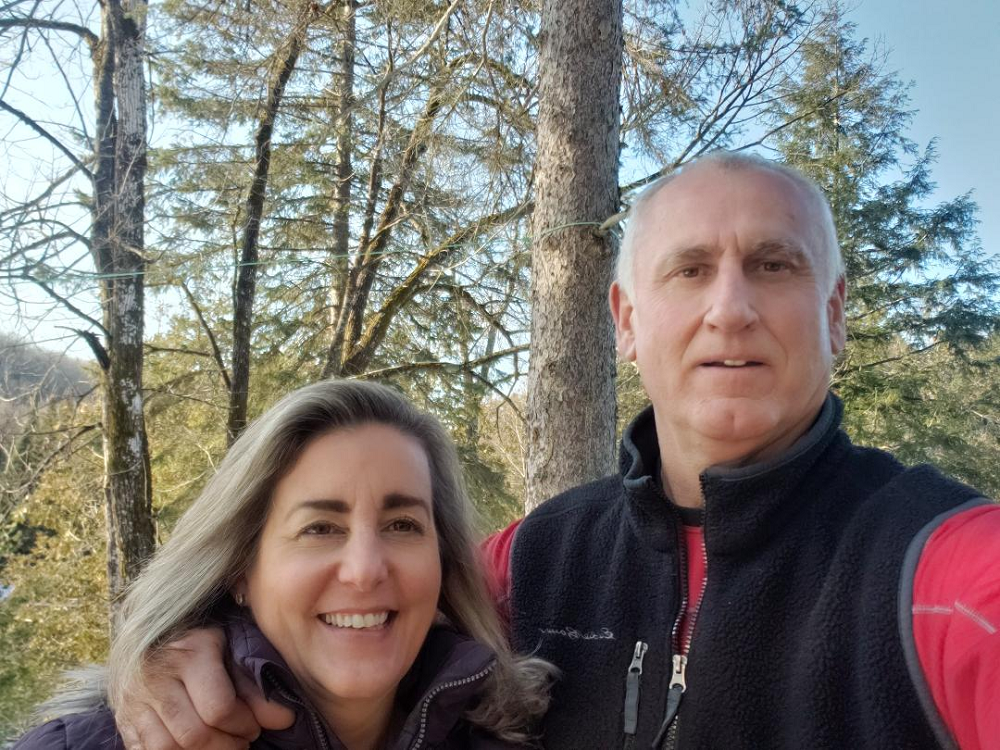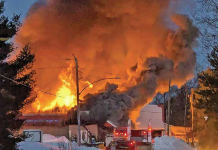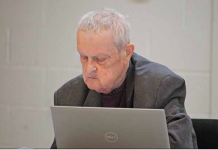A short-term rental owner in Highlands East has asked the township to pause the proposed STR bylaw and municipal accommodation tax (MAT).
Elizabeth Oakley made the request at a Dec. 12 council meeting. She said she is also a volunteer leader for the Bancroft-Madawaska Area Airbnb Host Community on Facebook.
Oakley said her Airbnb is her primary residence, rented to offset expenses.
“Both of us (partner Grant Kauffman) work full-time. We are not speculators, nor are we absentee hosts. We’re not operating under any illusions that we’re going to become millionaires.” She said her research has determined the typical host makes about $9,000-a-year.
She acknowledged STRs have been “a blessing and a curse” with some “bad apples.” However, she said she vets renters “like crazy.”
She told council she agreed in principle with licensing of STRs as long as the cost is reasonable, saying $250 to $500-a-year was acceptable.
However, she said they’re “deeply concerned” about a MAT. She said tourists will go to municipalities without one, causing lost revenue; it could potentially drive hosts underground; is discriminating if not applied to hotels and motels and, “STRs’ contribution to the local economy far exceeds revenues generated through MAT.
“As property owners, we’re already taxed enough (property taxes and HST for the STR). Municipalities that don’t use the MAT for its prescribed use (50 per cent to go to a tourism third party to market the region) face zero consequences. Where is the accountability from the municipality expecting STR hosts to be accountable on their end? How can we be assured MAT funds will go to their intended purpose? Where’s the compliance on the municipality’s side?” she asked.
“This tax is fundamentally flawed and nothing more than a cash grab for municipalities hoping to make up for budget shortfalls.”
However, County of Haliburton director of economic development, Scott Ovell, has said staff would create a municipal services corporation, which would handle the money collected to go towards things such as destination marketing.
He has told County council that if the four municipalities were to implement the MAT, it could generate more than $3.4 million in revenue annually. Ovell based his projections on a calculation of 1,300 short-term rental hosts being charged a four per cent MAT. He said 80 per cent would have to remit the tax with a medium nightly rental rate of $348, and based on an average occupancy rate of 65 per cent.
The director said it would more than cover some items in the economic development and tourism budget, such as wayfinding signage, marketing, Hike Haliburton programs, economic development strategy works and web design and maintenance.
“The savings created by this approach could then be redirected towards other programs and/or services provided by the County,” Ovell said.
In her delegation to council, Oakley added STRs contribute to local economies and noted a lot of STR bylaws are being challenged in court. She said Airbnbs in Ontario contributed $1 billion to the economy last year; owners hire property managers and create other jobs; they fill the void of not enough hotels, motels and B&Bs; they attract tourists who spend locally; and sometimes these people move permanently to the area.
“My worry is there is significant pressure being put on municipalities to rush this flawed legislation through without fully examining the impact it will have, not only on STRs, but to the local businesses and those employed by them, in the long run. Let’s find equitable solutions and move forward taking all parties into consideration.
“I’m asking you to consider taking a pause before implementing both the licensing and taxing of STRs here. Wait until the Tiny Township legal case is resolved, as I’m certain the findings there will set a precedent across Ontario.”
In Tiny Township, four appeals were filed with the Ontario Land Tribunal – the provincial board that hears and adjudicates matters related to land use planning, environmental and natural features, heritage protection and more – regarding the township’s recently-adopted STR bylaw.
“A phased approach followed by a study of the first-year impact and a more measured and balanced approach to the MAT is the best course of action to take in what remains a challenging and emotionally charged matter,” Oakley said.
Council received the delegation for information only.





